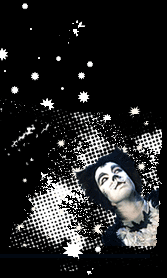Now and for what seems like forever
Cats enters its 20th year in the West End tonight, but is it really a cause for celebration?
Cats turns 180 years old today, or 20 years in human terms. But amid the inevitable champagne and self-congratulations sure to accompany tonight’s celebrations for Britain’s longest running musical, perhaps it’s worth pondering whether this once seemingly frisky feline has now become a lumbering dinosaur.
To be fair, there’s every reason to applaud the sheer bravado of an endeavour which looked far from certain on paper two decades ago: the composer, Andrew Lloyd Webber, separated from his hit collaborator, Tim Rice, teaming up with a relatively untested young producer, Cameron Mackintosh, at that point best known for revivals, to adapt the work of a dead American poet, T. S. Eliot.
Nor should we forget that the show’s director, Trevor Nunn, currently the outgoing head of the National Theatre, had by 1981 proved himself in the subsidised sector with Shakespeare and Sean O’Casey but never globetrotting musicals.
Nunn’s commitment turned out to be especially lucrative: his royalties for the lyrics to Memory alone could probably bankroll an entire season at the National.
Now, of course, Cats has become a West End mainstay, the flashing eyes of its logo as much an international symbol of Britain as, say, Big Ben. Its ad slogan, too, was audacious: you don’t announce yourself as "now and forever" when you’re planning to close next week.
A cumulative attendance figure of eight million people in London alone tells its own astonishing story, as does a worldwide gross in excess of £1 billion. And though its Broadway home, the Winter Garden Theatre, has been vacated to make way this autumn for another British hit, Mamma Mia!, the New York production ran long enough to surpass A Chorus Line to become, in 1997, the longest-running Broadway musical.
With hindsight, though, it’s possible to view Cats as a symbol of the excess of a musical era which produced worldbeating blockbusters that could be neatly encapsulated by one scenic effect: the Cats junkyard and Les Miserables barricades, The Phantom of the Opera’s falling chandelier and Miss Saigon’s helicopter and Ho Chi Minh statue.
That sense of scenic overkill — you leave humming the sets — accounts in part for Cats’ status in some quarters as more a symbol of ridicule than of celebration. In 1994, The New York Times’s then drama critic Frank Rich wondered whether it was even "worth applying (standards) to a Broadway where the apex of achievements in the 1980s was Cats".
Cats’ legacy may well have been a decade-plus of internationally minded juggernauts, many of which sank the minute they left British shores: Chess lasted a scant ten weeks on Broadway; Cameron Mackintosh’s much reworked Martin Guerre closed on its pre-New York tour.
And where is the new generation of English musical theatre talent — the kittens, so to speak — that Cats’ success might have fostered? The shortlist for this doesn’t extend much beyond George Stiles and Anthony Drewe, Olivier-winners two years ago for best musical for another animal-themed show, Honk! The Ugly Ducking. But that show is as sweetly modest as Cats is bloated, while other new talents aren’t so much waiting in the wings as altogether absent.
Perhaps it’s simply the nature of theatre for the pendulum to swing back, with the British domination of the musical during the Cats era now being superseded by America. Nowadays, with the exception of Mamma Mia! — and only then because of its Abba songs — one can’t imagine any other British-spawned original musical beating the path once trodden by Cats, whose global appeal is due largely to the fact that its furry gyrations are language-proof.
These days, the musical again belongs to America, with Broadway currently putting its best comic foot forward (with The Full Monty, rumoured to be coming to the West End, and The Producers) in place of ponderous Cats-style spectacle.
Not that the British perennial has been entirely forgotten in a Manhattan currently given over to Mel Brooks-mania. Even such a New York-Jewish show as The Producers can’t resist poking some affectionate fun at its feline cousin: at the end of Brooks’s musical, the stage is floodlit with signs of the huckster producers Max Bialystock and Leo Bloom’s other theatrical achievements. And there among them is a show called Katz.
By Matt Wolf, The Times

